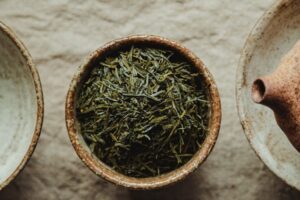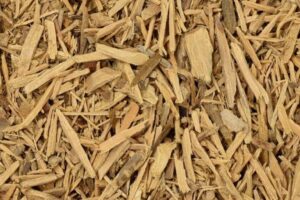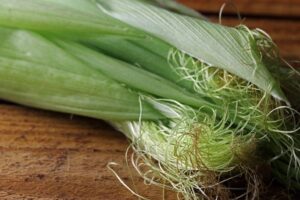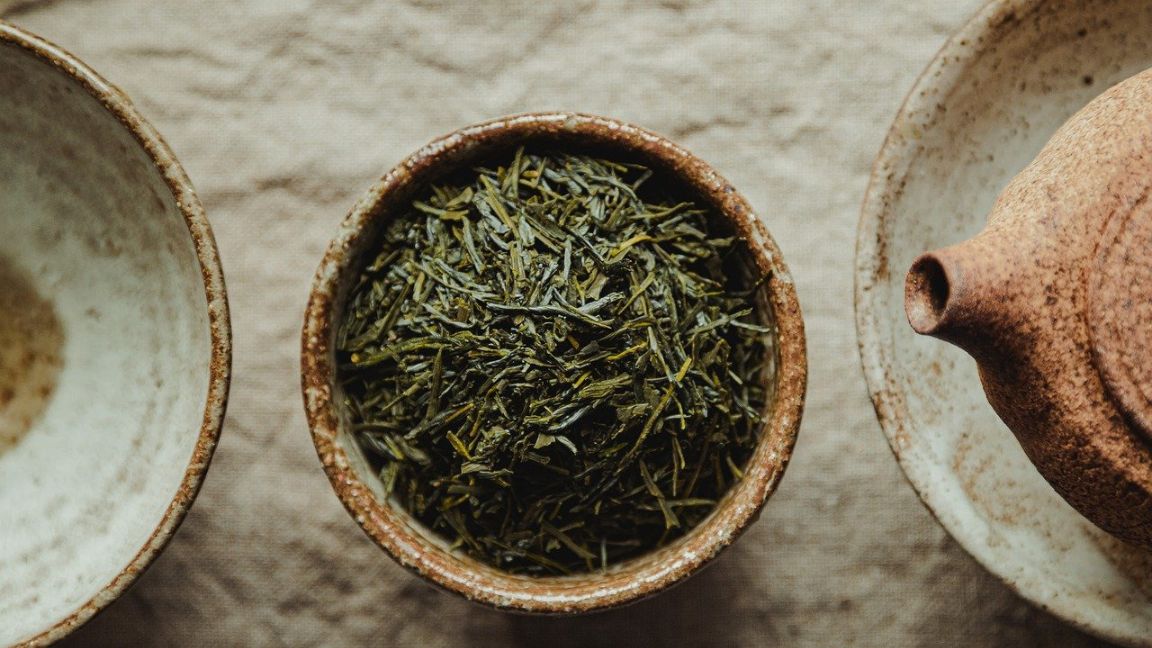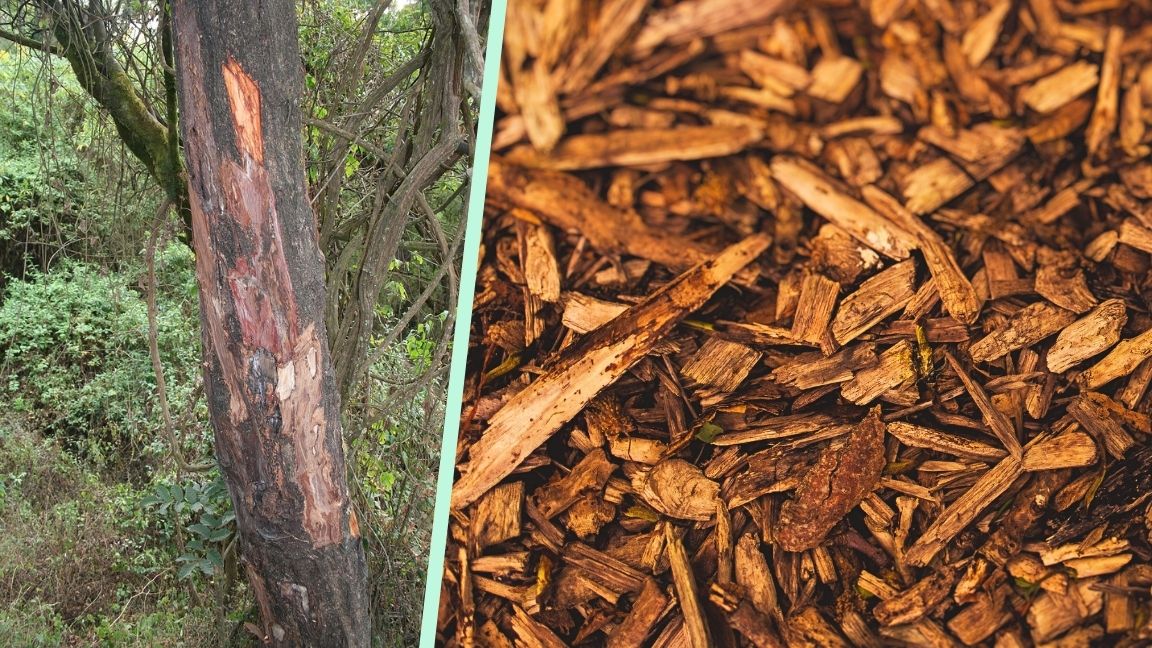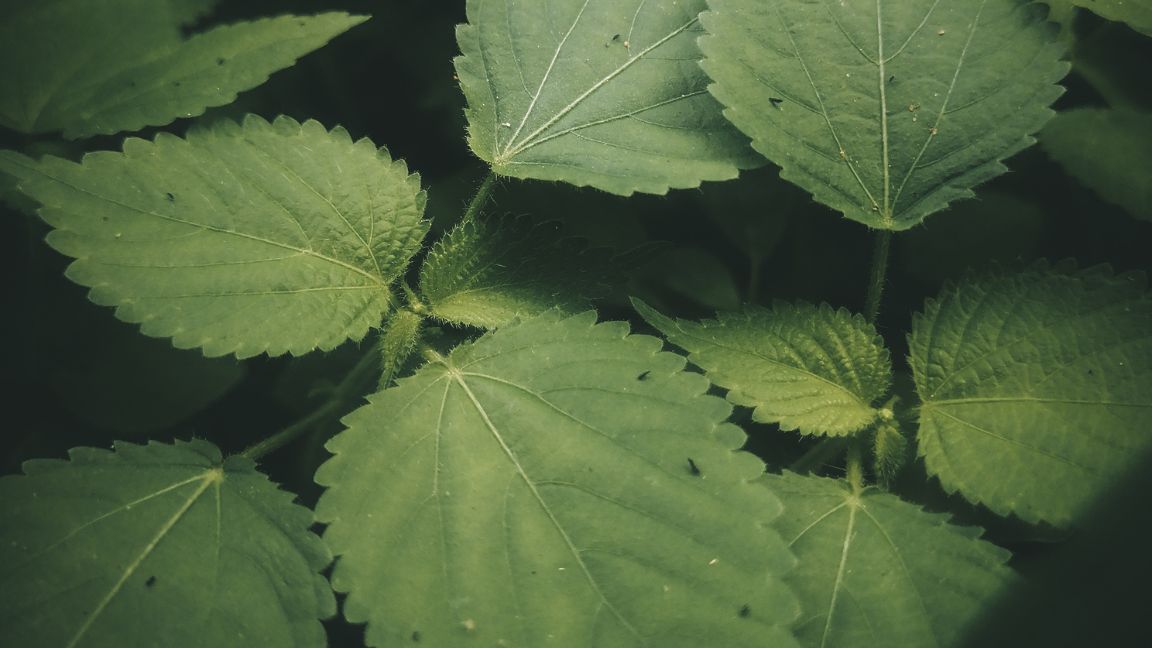Golden Glimpses of Goodness
- Mint’s historical use in traditional medicine links to managing testosterone and prostate health.
- Proven potential in reducing enlarged prostate symptoms due to anti-inflammatory properties.
- Detailed studies underscore Mint’s beneficial impact on blood sugar balance, weight loss, and heart health.
- Always consult professionals: mint offers natural benefits but can interact with other treatments.
Table of Contents
- The Secrets of Mint for Prostate Health
- What is Mint?
- Benefits of Mint
- Scientific Studies and Evidence
- Side Effects of Mint
- Psychological Impact of Prostate Issues and Mint
- Inflammation, Cancer, Hormonal Imbalance & Mint
- Diabetes, Sugar Balance, Healthy Heart, Weight Loss & Sleep
- How Does Mint Impact Testosterone Levels?
- Comparison with Other Prostate Health Treatments
- Dietary Incorporation of Mint
- Dosage Recommendations
- Interactions with Other Supplements and Medications
- The Final Leaf: Mint’s Potential in Prostate Wellness
- Frequently Asked Questions
The Secrets of Mint for Prostate Health
Picture this: as men age, the dance between testosterone and prostate health becomes a delicate waltz, with every misstep leading to a cascade of health concerns.
Now, imagine discovering a time-tested, natural remedy nestled right in our gardens – Mint.
While its refreshing aroma wafts through our homes and dishes, this humble herb might just hold the answers to combatting prostate issues, managing testosterone, and ultimately reclaiming a man’s vitality and well-being.
What is Mint?
Botanical Description and Historical Uses of Mint
Mint, is a genus of plants in the Lamiaceae family, known for its aromatic leaves. Historically, various cultures have revered mint for its medicinal properties and – as a delightful culinary herb.
Mint’s Identity Unveiled:
- Scientific Name: Mentha
- Other Known Names: Spearmint (Mentha spicata), Peppermint (Mentha × piperita), Wild Mint, Corn Mint, among others
- Origin: Widely distributed across Europe, Africa, Asia, Australia, and North America
- Production: Typically cultivated in gardens and other cultivated environments, and can also be found in wild habitats
Role of Mint in Managing Testosterone and Prostate Health
Mint, especially spearmint and peppermint, has displayed properties that might impact testosterone levels. In various traditional practices, it’s been suggested that mint could play a role in male reproductive health, particularly concerning the prostate gland.
In modern health discourse, while mint continues to be popular as a flavoring agent, its potential medicinal properties, especially concerning men’s health, have gained significant attention.
Benefits of Mint
Potential to Reduce Symptoms of an Enlarged Prostate
There’s emerging evidence suggesting mint might alleviate some symptoms associated with an enlarged prostate. It’s believed that the herb’s properties could counteract inflammation, contributing to symptom relief.
Overview of Pros and Cons Table of Mint:
| Pros | Cons | Resources |
|---|---|---|
| Mint may help relieve symptoms of digestive problems. | Mint may trigger asthma symptoms in people who are allergic to it. | 1, |
| Mint may help relieve symptoms of irritable bowel syndrome (IBS). | Mint may cause gastroesophageal reflux disease (GERD) in some people. | 1, 2 |
| Mint may improve the flow of urine and relieve symptoms associated with benign prostatic hyperplasia (BPH). | There is no scientific evidence to support many of the uses of mint. | 2, 3 |
| Mint may be used as a natural remedy for various ailments. | Medications changed by the liver (Cytochrome P450 1A2 (CYP1A2) substrates) may interact with peppermint. | 1, 2 |
Anti-inflammatory Properties of Mint & Impact on Testosterone Levels
Mint possesses anti-inflammatory compounds that can be beneficial for various conditions. For prostate health, the reduction of inflammation can be crucial, as it’s often associated with discomfort and other related issues.
Studies indicate that excessive consumption of spearmint might reduce testosterone levels in men.
This property could potentially be beneficial for those dealing with conditions like prostate enlargement, which is often linked to elevated testosterone levels.
Numerous men have reported positive outcomes after incorporating mint into their diets or wellness routines.
Some testify to experiencing reduced discomfort, while others note a general improvement in their prostate-related symptoms.
Potent Supplements to Augment Mint’s Efficacy
While mint shines on its own, pairing it with other supplements can pack a more potent punch. Take Echinacea for instance; it’s like a guardian angel for your immune system.
Throw in a bit of Valerian root, and you’re not just improving health, but also ensuring peaceful sleep. I’ve often sprinkled some Ginger into my tea for that gentle warmth and anti-inflammatory kick. Turmeric?
That’s like gold dust for health enthusiasts, thanks to its anti-inflammatory might. And don’t get me started on Ginkgo Biloba. Ever had those days where you walk into a room and forget why? Ginkgo Biloba might just be the friend your brain needs.
Scientific Studies and Evidence
Phytochemical Components of Mint & Men’s Health
Mint contains several phytochemicals, including rosmarinic acid and flavonoids—which are believed to positively impact men’s health.
These compounds have demonstrated useful significant and potential benefits for prostate health – in some studies.
Overview of Supplement’s Bioactive Powerhouse Components:
| Bioactive Component | Description and Potential Benefits | Sources |
|---|---|---|
| Menthol | The most predominant compound in peppermint. It offers soothing effects, especially useful in alleviating urinary tract irritation, ensuring smoother urine flow. | 1, 3 |
| Rosmarinic Acid | A powerful antioxidant and anti-inflammatory compound that aids in reducing inflammation in the prostate and elsewhere. | 1, 2, 3 |
| Flavonoids (Luteolin and Hesperidin) | Renowned as antioxidants. They also have potential benefits in hormone regulation and maintaining prostate health. | 1, 2 |
| Tannins | Have astringent properties, making them useful in reducing inflammation in the urinary tract. | 2 |
| Limonene and Carvone | Found in higher concentrations in spearmint, these compounds are known to influence hormone regulation, which can be beneficial for men with prostate concerns. | 2 |
Mint on Lowering Testosterone, Counter-Arguments & Efficacy
Several clinical trials have explored the impact of mint on testosterone levels and prostate health. A noteworthy study demonstrated a decrease in testosterone levels among male participants after consuming spearmint tea daily.
While mint offers several health benefits, it’s not a miracle cure for all prostate issues. It’s essential to approach any claims with a critical mind and rely on evidence-based findings.
Not all individuals will experience the same benefits from mint. Genetic factors, overall health, and other lifestyle choices can play a role in how one responds to mint’s properties.
Current research suggests that spearmint, in particular, might lower testosterone. However, it’s vital to note that not all studies align on this, and more comprehensive research is needed to draw definitive conclusions.
Side Effects of Mint
Potential Side Effects
While mint is generally safe for most, excessive consumption can lead to side effects like digestive upset, dizziness, and mouth sores. Always consider moderation when adding new elements to a diet or wellness routine.
Overview of Side Effects of Mint
| Side Effects | Resources | |
|---|---|---|
| Heartburn | Relaxes the lower esophageal sphincter, which can allow stomach acid to flow back into the esophagus | 1 |
| Dry mouth | Reduces the production of saliva | 1 |
| Nausea and vomiting | Irritates the stomach lining in some people, especially if large amounts are taken on an empty stomach | 1 |
| Allergic reactions | Some people may experience skin irritation, flushing, headaches, or asthma symptoms | 2 |
| Gastroesophageal Reflux Disease (GERD) | Although mint can aid some symptoms of digestion, it is not the case for people with GERD | 2 |
Mint’s efficacy and side effects can be influenced by lifestyle factors like diet, other medication, and overall health. For example, combining mint with certain medications might reduce its effectiveness or enhance side effects.
Psychological Impact of Prostate Issues and Mint
When dealing with testosterone-related prostate issues… many men experience not just physical discomfort—but also a significant emotional toll. The fear, stress, and anxiety linked with these problems can often lead to feelings of inadequacy – and even depression.
I’ve seen studies suggesting that the aroma of mint can have calming effects – potentially helping to alleviate feelings of stress and anxiety.
On the other hand, there’s limited evidence to suggest mint as a primary solution for significant mental health challenges. More research is undoubtedly needed to make a decisive conclusion.
RELATED: Top 4 Natural Prostate Supplements That Work
Inflammation, Cancer, Hormonal Imbalance & Mint
Mint has been recognized in traditional medicine for its potential anti-inflammatory properties. When consumed, it might help reduce inflammation, providing relief for various ailments including some prostate issues.
There’s no denying mint’s role in battling inflammation, but we’ve got some other contenders in the ring too. Ever cooked with Curcumin? It’s not just a spice; it’s a full-blown warrior against inflammation.
Then there’s Boswellia, which reminds me of stories my grandma told about ancient healing herbs. And, of course, Omega-3 fatty acids. I mean, who hasn’t heard of fish oil and its incredible benefits?
The link between mint and prostate cancer remains a topic of debate.
Some preliminary studies have hinted at mint’s potential protective effects against prostate cancer, but the evidence isn’t robust enough to make firm recommendations. It’s crucial to approach this with caution and seek expert advice.
Diabetes, Sugar Balance, Healthy Heart, Weight Loss & Sleep
Mint might play a role in managing blood sugar. Certain compounds in mint have been investigated for their potential anti-diabetic effects. It’s a promising avenue, but always best to incorporate mint as part of a broader dietary strategy for diabetes.
For heart health, the antioxidants in mint can potentially support a healthier cardiovascular system. However, while mint can complement a heart-friendly diet, it shouldn’t be seen as a primary solution to cardiovascular concerns.
There’s anecdotal evidence suggesting that mint tea can promote relaxation and sleep.
Additionally, mint may have a minor role in weight management due to its potential appetite-suppressing properties, but relying solely on mint for significant weight loss might be a bit optimistic.
RELATED: Top Sleep Aids for Prostate Issues
Deeper Connections for Prostate Wellness
When it comes to sugar balance, mint has companions. Cinnamon isn’t just for lattes; it’s a blood sugar hero. And Bitter Melon? It’s like nature’s little secret for diabetics.
I’ve read articles that rave about Berberine, especially its parallel effects to some diabetes medications. Alpha-Lipoic Acid and Chromium are more than just fancy names; they’re essentials for insulin response and blood sugar management.
Sleep, ah, that elusive comfort. I’ve heard folks talk about Chamomile like it’s the sandman in a cup. If chamomile is the sandman, Passionflower is the dream catcher, sweeping away insomnia. And Melatonin? That’s your body’s natural lullaby.
Need to shed a few pounds? Green Tea Extract has your back, or should I say, belly? Glucomannan and Caffeine are like the dynamic duo for weight loss. One keeps the appetite in check, the other boosts that metabolism.
How Does Mint Impact Testosterone Levels?
Mint, especially spearmint, has compounds that might influence the body’s production of testosterone. The exact mechanism remains a subject of ongoing research, but the interaction with enzymes responsible for testosterone synthesis seems promising.
Several studies, particularly those focusing on women with PCOS, have shown a decrease in testosterone levels after consistent mint consumption.
But remember, while these findings are intriguing, the implications for men and their prostate health are still under investigation.
Incorporating mint into a holistic approach to health might offer multiple benefits. When combined with a balanced diet, regular exercise, and stress management, mint can be part of a comprehensive strategy to maintain optimal testosterone levels and overall well-being.
Testosterone’s tricky, but nature’s got some solutions. While mint works its magic, Fenugreek steps in, reminding us of its Ayurvedic roots and testosterone benefits.
Ever sunbathed and felt rejuvenated? Thank Vitamin D for that, and maybe for a testosterone boost. Zinc is that quiet student in the back, indispensable but often overlooked.
It’s essential for testosterone balance. D-Aspartic Acid and Ashwagandha? Those are not just supplements; they’re a story of nature’s wisdom for men’s health.
Comparison with Other Prostate Health Treatments
Traditionally, physicians might prescribe medications like alpha-blockers or 5-alpha reductase inhibitors— for prostate health or managing symptoms.
While these medicines have proven effective for many—they often come with potential side effects. On the other hand, using mint as a natural testosterone lowering agent offers a more organic approach— potentially minimizing the risk of side effects seen with pharmaceuticals.
There’s a growing shift towards holistic health, and for a good reason. Using mint, a natural remedy, means fewer chemicals in the body, promoting an overall sense of wellness.
Additionally, embracing a natural strategy often brings with it a reduction in costs and a sense of empowerment in taking control of one’s health.
Dietary Incorporation of Mint
Mint can be easily incorporated into one’s diet in a myriad of ways. Fresh mint leaves can be added to salads, drinks, or even consumed raw.
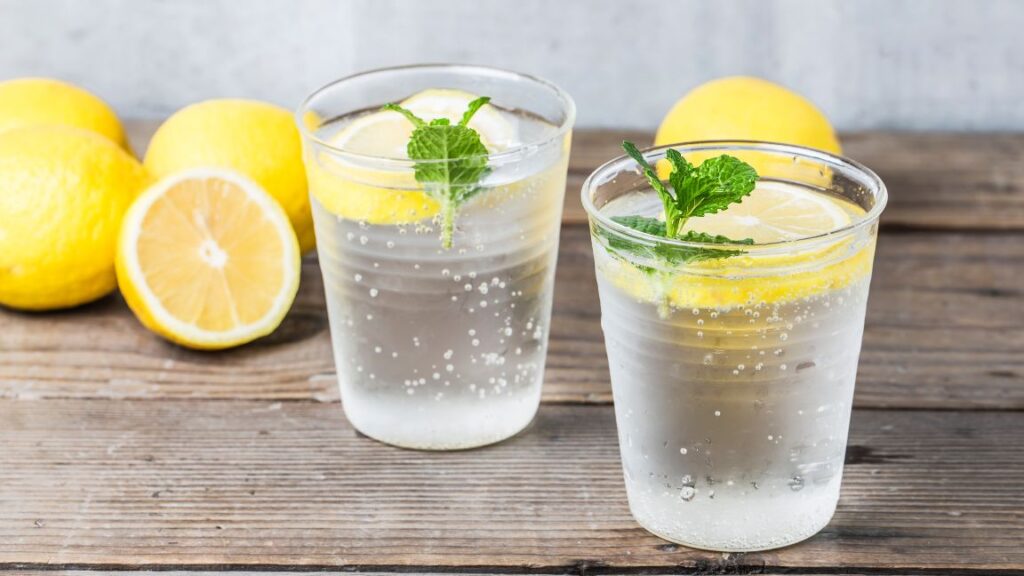
For a more concentrated intake, mint teas and mint-infused oils are widely available and offer a potent source of this beneficial herb.
Mint pairs wonderfully with many other herbs and foods. Combining mint with green tea not only tastes great but amplifies the health benefits. Similarly, blending mint with herbs like basil or rosemary can create a powerful concoction— that’s both flavorful and beneficial.
While mint stands out for its testosterone-lowering qualities… it’s crucial to remember that its effectiveness – can vary from person to person.
Traditional medications might offer quicker results for some, but the sustained, long-term use of mint can provide a holistic approach without the pharmaceutical side effects.
Expanding our herbal horizon beyond mint, we stumble upon gems. St. John’s Wort, for instance, is like that ray of sunshine on a cloudy day, lifting your mood. Elderberry isn’t just a berry; it’s an antioxidant powerhouse.
Talk about liver health, and Milk Thistle stands tall and proud. Black Cohosh resonates with women’s health, making it a favorite. And Astragalus? It’s like a page out of an ancient Chinese wellness diary, known for its rejuvenating properties.
Dosage Recommendations
Proposing Dosages for Prostate Health and Testosterone Regulation:
| Dosage | Benefits | Supplement Endorsement |
|---|---|---|
| Low Dose: 1 cup of mint tea daily | Improved digestion, enhanced mood | Fluxactive Complete –Buy now –Learn more |
| Moderate Dose: 2-3 cups of mint tea daily | Reduced testosterone levels, improved digestion, enhanced mood | |
| High Dose: 4 cups of mint tea daily | Stomach upset with excessive consumption |
Mint can be beneficial at all life stages. However, teenagers and young adults should moderate their consumption, ensuring it doesn’t interfere with natural hormonal developments.
For middle-aged men and seniors, especially those dealing with prostate issues, a consistent intake can be particularly beneficial. Always, when introducing mint as a regular supplement, it’s wise to start slow and monitor the body’s response.
Interactions with Other Supplements and Medications
While mint is generally considered safe, it might interact with certain medications, especially those affecting the heart or blood pressure.
If you’re on any prescription, it’s crucial to discuss with your healthcare provider before incorporating a significant amount of mint in your diet.
Sustainability is crucial when adopting any supplement or dietary change.
Thankfully, mint is not only beneficial but sustainable. Growing mint is relatively easy, even at home, ensuring a fresh, organic supply. When sourcing mint, it’s good to opt for ethically grown and harvested products.
Consistent and high consumption of mint can occasionally lead to an upset stomach or heartburn for some individuals. To prevent this, ensure you’re not over-consuming and listen to your body’s signals.
Also, combining mint with a diverse range of other foods and herbs can help in balancing its effects.
The Final Leaf: Mint’s Potential in Prostate Wellness
Embracing mint for prostate health and testosterone balance is rooted in both ancient wisdom and modern research.
As I continue to delve into the world of nutrition, I’m committed to updating this content with the freshest insights from emerging studies.
Yet, remember, while mint’s potential is vast, a comprehensive approach is essential. Always consult your physician when making significant dietary shifts, and let’s journey together towards holistic well-being.
Frequently Asked Questions
Does mint influence prostate health?
The potential of mint for prostate health lies in its ability to manage testosterone levels. Several men have reported benefits after consuming mint.
Is daily mint consumption safe?
For most individuals, consuming mint daily poses minimal risks. However, it’s vital to always consult with a healthcare professional before making significant dietary changes.
How does mint impact testosterone?
Mint has properties that may lower testosterone levels. Studies have observed these changes after regular mint consumption.
Does mint aid in weight loss?
Mint can contribute to weight management due to its potential in balancing blood sugar levels. Plus, it might indirectly aid weight loss by affecting testosterone levels.
Can mint alleviate enlarged prostate symptoms?
There’s evidence suggesting that mint’s anti-inflammatory properties can reduce symptoms of an enlarged prostate. Yet, results can vary among individuals.
What if I combine mint with other treatments?
It’s crucial to note that mint’s interaction with other medications or treatments might differ. Always consult with your doctor before blending mint with other remedies.
Which form of mint offers the best benefits?
While various mint forms exist, consuming it naturally, like in tea or food, often yields optimal benefits. Still, supplements can offer concentrated benefits when taken correctly.
Now, if you’re inspired to incorporate mint into your regimen for its potential benefits, always start by chatting with your healthcare expert.
Dive into nature’s wonders, but do it wisely, alright?
Do you think nature holds more secrets like mint for our well-being?

